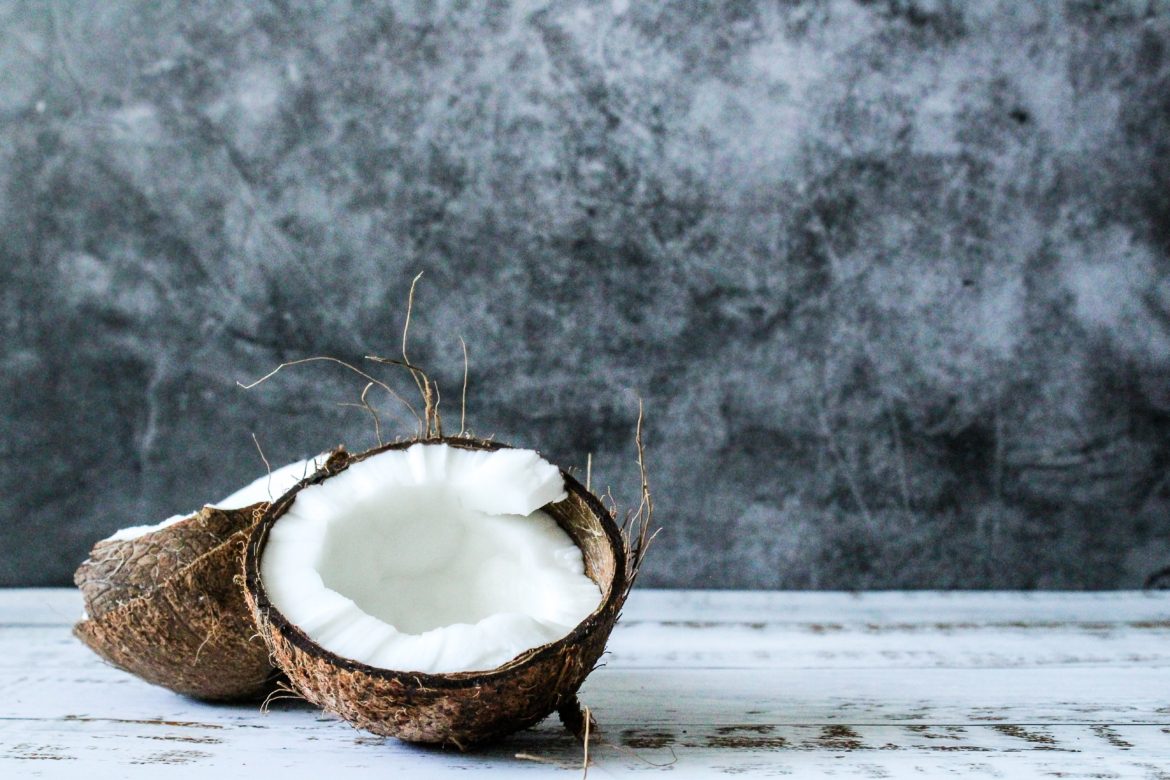15 Non-Culinary Uses of Coconut Oil
Coconut oil is one of the most popular cooking oils around the world. It is widely available, has a bright and delicate taste, and also offers various health benefits. In fact, it has also been marketed as a superfood lately and is particularly helpful for people following low-carb diets such as Keto or Atkins.
But did you know that coconut oil can be used in a lot more ways than just cooking? It is a versatile oil that can be used in a number of ways that you may not be aware of. So, without wasting any time, let’s take a look at the best non-culinary uses of coconut oil.
1. Scalp Massage
You’ve probably grown up watching those ads that show coconut oil magically transforming dull and frizzy strands of hair into long and luscious locks. While those ads were certainly exaggerated, they weren’t far from the reality. In fact, the haircare benefits of coconut oil may be the best and most common non-culinary use of coconut oil.
Regularly massaging your hair and scalp with coconut oil can add new life to your hair and make them longer and thicker. All you need to do is take a sufficient amount of coconut oil and rub it between your hands. When it is soft, rub it through your scalp down to the ends of your hair thoroughly. Massage it for a few minutes and then leave it on your hair for at least an hour, or even overnight, before washing with a mild shampoo or conditioner. You can also warm the oil before applying it to your hair for a hot massage.
2. Skin Moisturizer
Coconut oil can be used as a natural skin moisturizer. Usually, the moisturizers that you find in stores and pharmacies are loaded with harmful chemicals and preservatives. The companies that manufacture these moisturizers want you to continue buying their products. Therefore, they only provide a temporary solution for your skin issues.
However, in the long run, these can be more harmful than beneficial and can actually dry out your skin. Organic extra virgin coconut oil does not contain any artificial ingredients, chemicals, or preservatives. It quickly absorbs into the skin and hydrates your skin from within.
And don’t worry, it isn’t greasy at all. Just take a small amount of coconut oil – a little goes a long way – and warm it up between your fingers. Rub it into your faces in circular motions and then any other body parts such as hands, legs, arms, and elbows that may need moisturization. After a few minutes, wipe away any excess oil with a tissue or paper towel.

3. Sunscreen
Aside from a natural moisturizer, coconut oil can also act as a natural sunscreen. According to one study, coconut oil can block about 20% of the sun’s harmful UV rays. When applied topically on the skin, it can protect your skin from sun exposure and reduce your risk of premature, aging, brown spots, and even skin cancer.
However, another study found that the sun protection factor (SPF) of coconut oil is 7, which is much lower than the minimum recommendation of 15 – while the general recommendation is 30. Therefore, it cannot provide the same protection as a conventional sunscreen. Yet, it can be added to your routine when you won’t be spending too much time in the sun and need a mild protectant instead.
4. Dental Care
Bacteria known as Streptococcus mutans thrive inside your mouth and cause tooth decay, dental plague, and gum disease. Coconut oil can be used as a powerful weapon against bacteria, including this on. It was found in one study that a process known as oil pulling can be as effective as rinsing your mouth with an antiseptic mouthwash for reducing these bacteria.
For this purpose, you need to swish coconut oil around your teeth and gums and then leave it there for 10 minutes. Then rinse it with water and a mild mouthwash. According to another study, regular oil pulling with coconut oil can also reduce inflammation and plaque in teenagers with gingivitis.
5. Fights Infection
Extra virgin coconut oil has antibacterial properties, which can help treat infections. Lauric acid – one of the main acid components in coconut oil – appears to fight yeasts. One test tube study also found that coconut oil was effective in reducing the growth of the intestinal bacteria Clostridium difficile, also known a C. diff, which can cause severe diarrhea.
However, the studies that show the benefits of coconut oil are still limited. Therefore, more study is required to understand the proper effects of coconut oil for this purpose as well as whether it is more helpful when ingested or applied directly to the skin.
6. Homemade Shampoo
Did you know that you can even make a homemade shampoo with coconut oil? And it won’t leave your hair oily and greasy afterwards either. A coconut oil and apple cider vinegar combo is a chemical-free alternative to shampoo.
Not only does it naturally clean your hair, but it also leaves your hair soft and shiny. If you have color-treated hair, this natural shampoo can also help it last longer. And the best part is that it contains no sulfates, which can strip the hair of its natural moisture.
7. Homemade Toothpaste
In addition to homemade shampoo, you can also make homemade toothpaste with coconut oil.
All you have to do is mix equal parts coconut oil and baking soda to make a thick mixture and use it normally with a toothbrush. Both coconut oil and baking soda are excellent for cleaning your teeth and can keep your oral hygiene in optimal condition. If the taste puts you off or you’re feeling a little fancy, you can add a few drops of peppermint oil to give it a familiar, toothpaste-like taste.

8. Anti-Wrinkle Cream
Noticing wrinkles and crow’s feet around the eyes can be really frustrating for some people. While it isn’t easy to completely get rid of these wrinkles, coconut oil can help keep things under control. Just dab a very little coconut oil around your eyes or any other area that may be affected by wrinkles or signs of premature aging and let it sit overnight.
Regularly practicing this habit can be very beneficial in fighting wrinkles. If you haven’t developed any wrinkles yet starting this practice can also delay their appearance without harming your skin in any way.
9. Diaper Cream
Diaper rashes can be annoying. You don’t want your little one to suffer any kind of pain or discomfort but you are also wary of applying any medications that may contain harmful chemicals. Coconut oil can help solve this issue as well.
Just like using a moisturizer, rub a dollop of coconut oil between your fingers before applying it to your baby’s bum and legs. This can help soothe their rash and make them – and you – happier.
10. Non-Toxic Insect Repellant
While the insect repellants you find in pharmacies do a great job at keeping those annoying mosquitoes and other insects away, they don’t always contain the most skin-friendly ingredients. Some essential oils, such as lavender oil, tea tree oil, and lemon eucalyptus oil, are known to be some of the best natural ingredients to keep insects at bay.
However, you can’t apply these essential oils directly to your skin. They are very potent and can cause irritation or rashes if applied directly. To prevent this from happening, it is important to dilute essential oils in a carrier oil before applying them to the skin. According to one study, a few drops of Thai essential oil mixed with coconut oil provided up to 98% protection from the bites of certain mosquitoes.
11. Natural Deodorant
Did you know that your sweat in itself has no odor whatsoever? It is the bacteria living on your skin that produce undesirable, and sometimes downright disgusting odors. Since coconut oil has strong antibacterial properties, it can work as a great natural deodorant.
Just like everything else, this deodorant would contain no harmful chemicals. While there are many natural deodorant recipes with coconut oil that you can find on the internet, a simple one requires you to use just coconut oil, cornstarch, and baking soda. Mix the three ingredients in a small glass jar and apply a very small amount on your underarms regularly.
12. Carrier Oil for Essential Oils
As discussed before, essential oils can be harmful to your skin if applied directly. However, there are innumerable benefits of topical application of essential oils. Lavender essential oil can brighten your skin and make you feel more calm and relaxed.
Tea tree oil can fight acne and reduce skin inflammation. Chamomile essential oil can restore the moisture of your skin. Clary sage oil can control the excess sebum production by the skin and can fight the signs of aging. Geranium oil can balance out skin oil.
Yet, none of these will actually be beneficial without a carrier oil. Coconut oil is a great carrier oil that doesn’t just prevent the essential oils from harming your skin, but also provides additional benefits to the skin.
13. Relieve Symptoms of Arthritis
The pain and immobility of the joints caused by inflammation is known as arthritis. It is a very serious health condition and can become a hurdle for anyone who suffers from it. According to some animal researches, an antioxidant called polyphenols found in coconut oil may be effective for managing the symptoms of arthritis.
One study found that when rats with arthritis were treated with polyphenols from coconut oil, they experienced a significant reduction in swelling as well as several inflammatory markers.
14. Makeup Remover
Leaving your make up on while you sleep can clog your pores and cause your skin to break out. While you can use a store-bought makeup remover for this purpose, coconut oil works just as well – if not better. It is a much cheaper natural alternative to makeup removers that can gently and effectively remove makeup from your skin. Just dab a cotton pad in coconut oil and gently wipe your faces and neck until all traces of makeup disappear and you are left with a clean and fresh face.
15. Stain-Remover
Watching that spilled coffee on your carpet or ketchup on your couch can seem like the end of the world. You want to clean it yourself, but you don’t want to damage your furniture. Taking it to get cleaned is a huge responsibility and costs a lot.
While some dried up stains may be difficult to handle on your own, coconut can help in getting rid of fresh stains. Combine one part baking soda with one part coconut oil and mix it into a paste. Apply the mixture to the stain and leave it for five minutes before wiping it off with a wet paper towel. Let it dry and repeat the process until the stain is gone completely.
As you can see, coconut oil is a multi-functional oil that has many uses, even outside the kitchen. So, the next time you’re being double-minded about purchasing coconut oil or not, remember that it may come in handy in the most unexpected situations.


